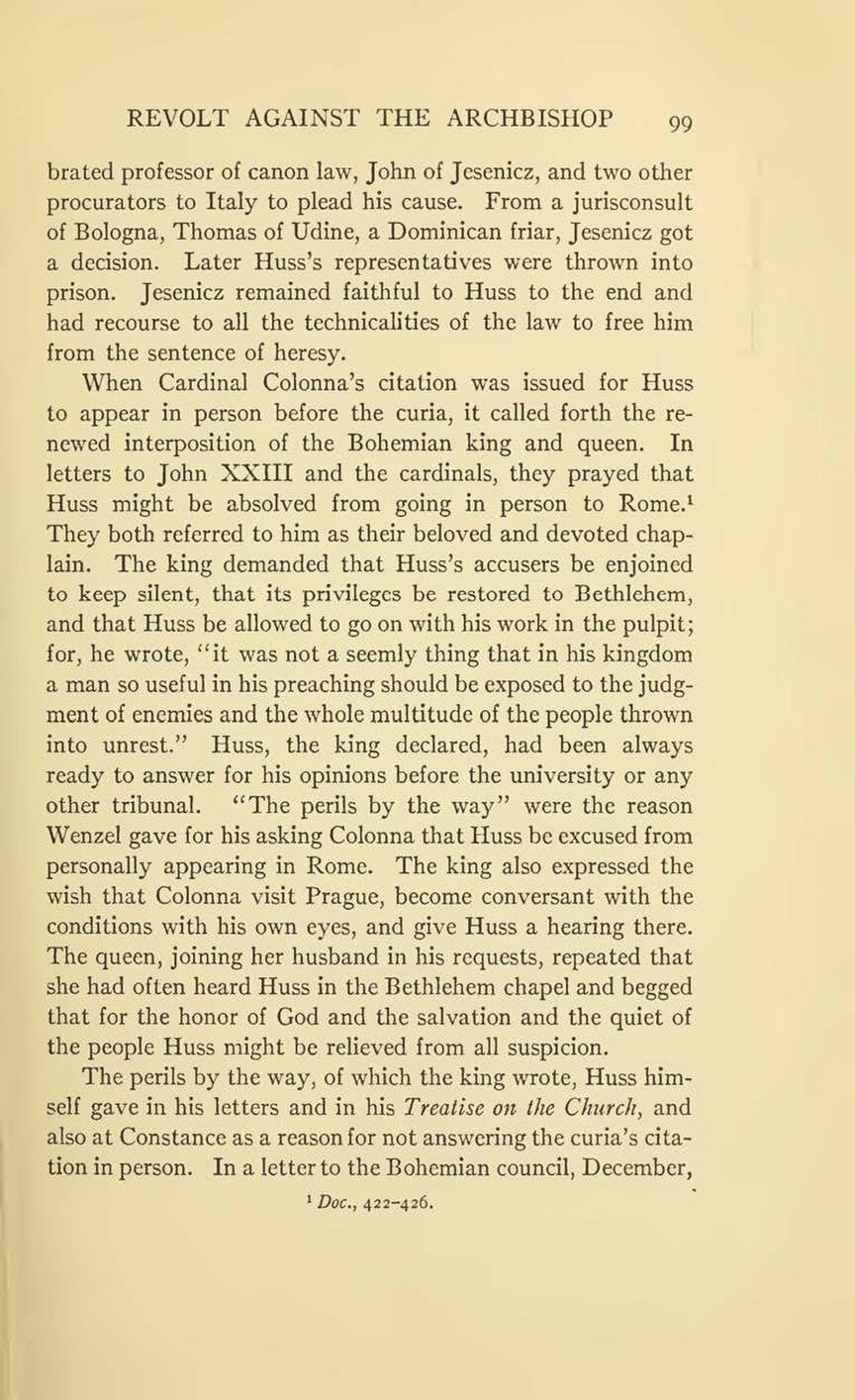brated professor of canon law, John of Jesenicz, and two other procurators to Italy to plead his cause. From a jurisconsult of Bologna, Thomas of Udine, a Dominican friar, Jesenicz got a decision. Later Huss’s representatives were thrown into prison. Jesenicz remained faithful to Huss to the end and had recourse to all the technicalities of the law to free him from the sentence of heresy.
When Cardinal Colonna’s citation was issued for Huss to appear in person before the curia, it called forth the renewed interposition of the Bohemian king and queen. In letters to John XXIII and the cardinals, they prayed that Huss might be absolved from going in person to Rome.[1] They both referred to him as their beloved and devoted chaplain. The king demanded that Huss’s accusers be enjoined to keep silent, that its privileges be restored to Bethlehem, and that Huss be allowed to go on with his work in the pulpit; for, he wrote, “it was not a seemly thing that in his kingdom a man so useful in his preaching should be exposed to the judgment of enemies and the whole multitude of the people thrown into unrest.” Huss, the king declared, had been always ready to answer for his opinions before the university or any other tribunal. “The perils by the way” were the reason Wenzel gave for his asking Colonna that Huss be excused from personally appearing in Rome. The king also expressed the wish that Colonna visit Prague, become conversant with the conditions with his own eyes, and give Huss a hearing there. The queen, joining her husband in his requests, repeated that she had often heard Huss in the Bethlehem chapel and begged that for the honor of God and the salvation and the quiet of the people Huss might be relieved from all suspicion.
The perils by the way, of which the king wrote, Huss himself gave in his letters and in his Treatise on the Church, and also at Constance as a reason for not answering the curia’s citation in person. In a letter to the Bohemian council, December,
- ↑ Doc., 422–426.
